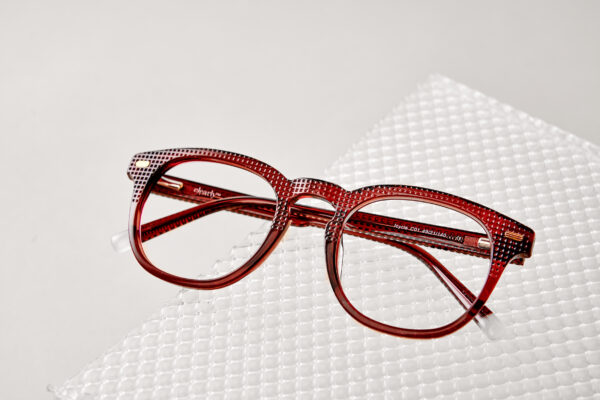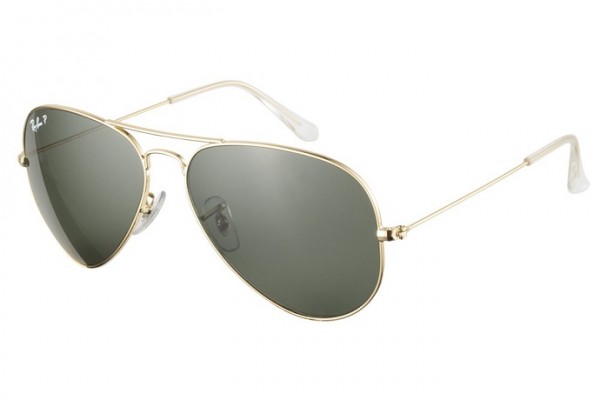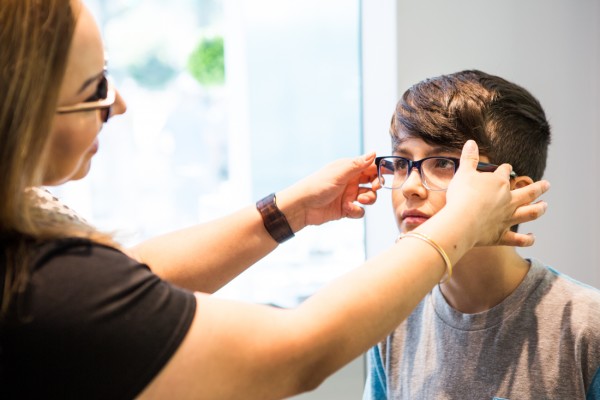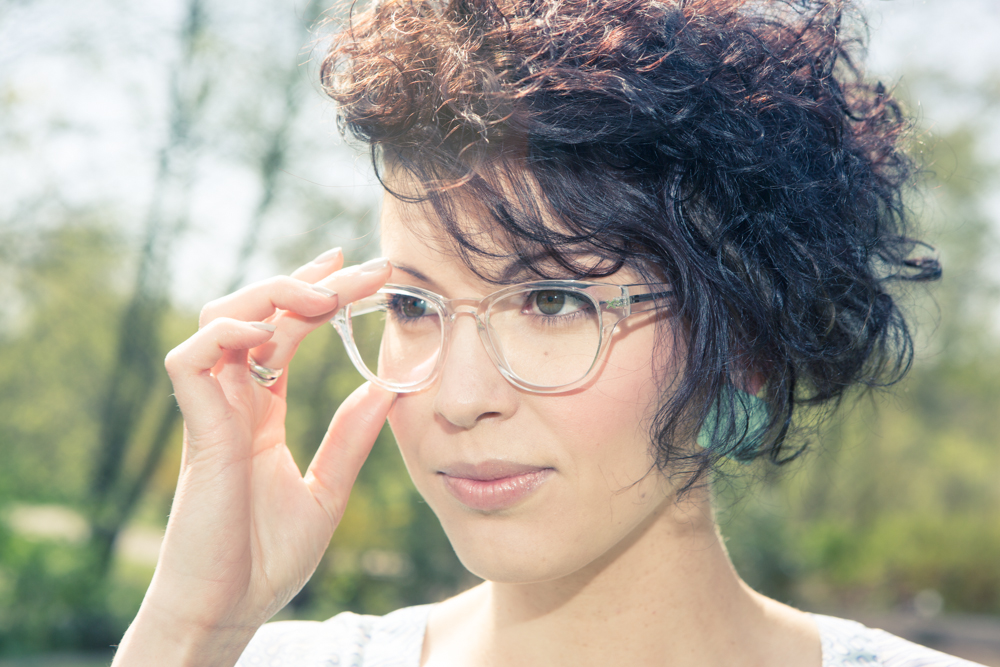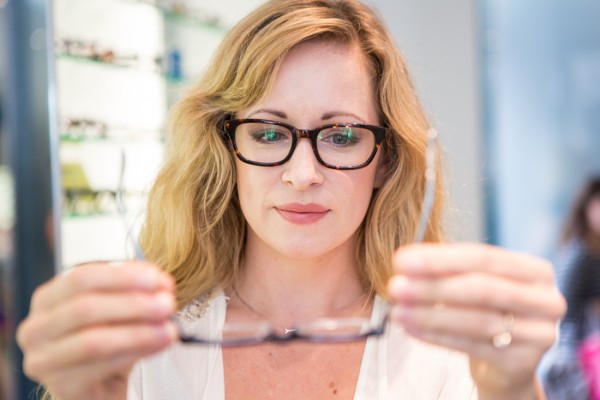You’ve heard of eco-friendly clothing and shoes – but what about eco-friendly glasses and sunglasses? Yes – they are a thing (and yes, they’re amazing).
If you’re looking for ways to expand your sustainable wardrobe and make planet-friendly choices, you’re in the right place. Here, we share our favourite eco-friendly glasses collections and offer tips on how to recycle or donate your old glasses.
From bio-acetate frames made from renewable resources to glasses that are made from recycled plastic bottles, get ready to fall in love with the latest in eco-friendly fashion.
- Plant-based glasses
- What is bio-acetate?
- Recycled plastic glasses
- What to do with old glasses
- Shop for eco-friendly glasses
Bio-acetate glasses

Plant-based alternatives are popping up everywhere, from food to clothing and beauty products – and now glasses are in on the game.
Bio-acetate glasses are one of the latest eco-friendly products to hit the plant-based shelves. Our collection of bio-acetate frames is made from renewable resources, which use 54% less CO2 emissions compared to standard plastic.
Available as either glasses or sunglasses, our collection of bio-acetate frames are biodegradable and bio-based – that’s a double-bio-whammy. Oh, and did we mention they’re bio-beautiful, too?
What exactly is bio-acetate?
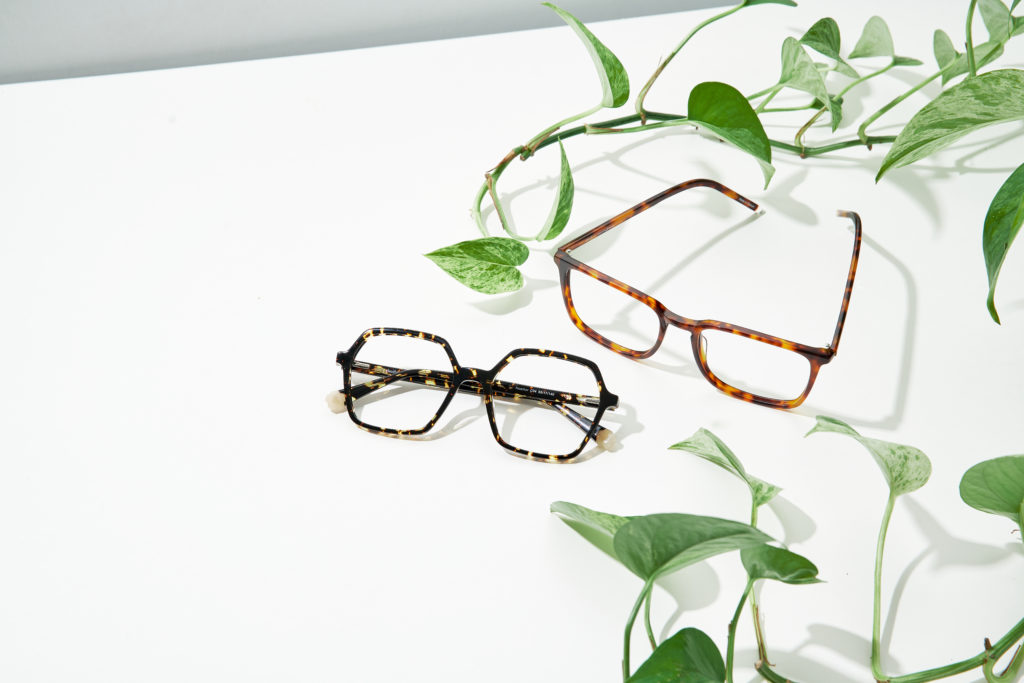
Regular acetate frames are made from cellulose acetate, which is a material derived from plants (like wood pulp, cotton, sugarcane, beet, and other vegetal-based sources).
Traditionally, plasticizers that are fossil-fuel (oil-based) are added to this mix and used to create acetate products. This introduces a whole host of chemicals and processes that aren’t very good for the planet.
Rather than using fossil fuels, bio-acetate frames are made with an organic, plant-based, phthalate-free plasticizer. All these fancy words mean that our plant-based collection is made from natural and renewable resources.
How long does it take for bio-acetate glasses to biodegrade?
Don’t worry – you’re not going to end up with compost juice on your face. Our bio-acetate frames are built to last. They’re as durable and reliable as traditional acetate frames (just with a more planet-friendly vibe).
You can wear them for many years (though remember you need an eye exam at least once every 2 years, so be sure to update your frames with your prescription).
Can you put bio-acetate frames in the compost?
It doesn’t quite work that way – bio-acetate and compostable materials should be treated differently.
While these frames are biodegradable, they won’t break down at the same rate as your apple cores and coffee grinds. There are also some small metal components on your frames (screws and hinges) that need to be recycled separately.
Wondering what to do with them at the end of a long, happy journey? Find out below.
Recycled plastic glasses
As well as looking for eco-friendly alternatives to traditional plastic, we’re all about making use of the plastic that already exists on this beautiful planet of ours.
Our Reincarnate collection reimagines trash and transforms it into a fresh pair of glasses – each frame is made from 5 recycled plastic bottles.
What to do with old eyeglasses
When it’s time to say goodbye, you can send your glasses back to us and we’ll make sure they’re donated or disposed of responsibly.
Contact our Customer Service team for details on how you can mail them in.
Get more tips and advice on how to donate or recycle your old glasses.
Shopping for eco-friendly glasses and sunglasses

When you’re ready for new glasses or sunglasses, make it a pair that look just as good on Mother Nature as they do on you.
- Explore our face shape guide for styling tips
- Browse our eco-friendly frames to find your perfect pair
- Add lenses or customize your own sunglasses
- Enjoy our amazing planet through an eco-friendly viewpoint





